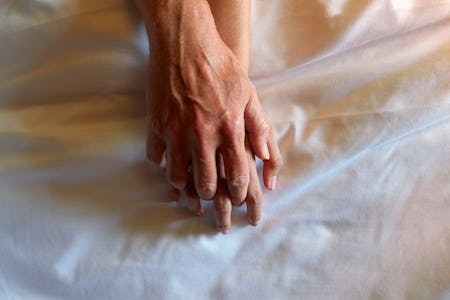Porn Induced Erectile Dysfunction Is Likely A Myth, Says Study
A new study questions the common notion that pornography and erectile dysfunction are linked.

Porn is ubiquitous. Some 40 million American adults regularly visit pornography sites on the internet with more than 28,000 people watching pornography on the internet at any given time. With something so common, what are its impacts to its users? The question is extremely well study, but a clear and straight answer is elusive given the complexity or the subject and the propensity for myth. For example, the idea of whether porn addiction is a thing is a matter of academic debate.
Another matter of debate — or at least rumor. Porn use has often been named as a top reason for erectile dysfunction. Now, recent research shows that that’s not the case at all. While there is definitely some problematic porn out there, typical use of pornography does not impact either sexual satisfaction or sexual function, according to a study published in the International Journal of Impotence Research.
For the study, David R. Rowland, Ph.D. of Valparaiso University in Valparaiso, Ind., and his team examined data collected from over 3,500 men from various English-speaking countries and Hungary. Participants completed surveys comprised of demographic questions and questions regarding mental and physical health, sexual orientation, number of current partners, relationship status and satisfaction, sexual satisfaction, pornography use, masturbation, their interest in sex, and the importance of sex in their lives. They also answered questions about ejaculation (whether delayed or premature) and erectile dysfunction.
They found that pornography use was not linked in any meaningful way to penile functioning or ejaculation timing. However, there was a slight correlation between frequent masturbation and erectile dysfunction. They also found no relationship between pornography consumption and decreased relationship or sexual satisfaction after controlling for masturbation frequency.
The study authors did recommend further study into the link between masturbation frequency and relationship/sexual satisfaction in younger or less sexually experienced men.
“Masturbation frequency appears to have discernible though weak effects on erectile functioning during partnered sex,” the team wrote. “Although further study is needed for verification, heavy reliance on pornography use coupled with a high frequency of masturbation may nevertheless represent a risk factor for diminished sexual performance and/or poor relationship satisfaction in some men.”
Rowland’s study aimed to address inconsistencies and limitations from previous studies naming pornography use as a contributor to erectile dysfunction, as many previous studies were based solely on case studies and clinical reports. Rowland’s research, while more extensive, comes with limitations of its own.
Rowland’s research team based their assessments on self-reported survey data from the participants, which can be inaccurate due to bias, dishonesty, or mistakes on the part of the survey respondent.
Despite those limitations, the findings could put to rest the long-held and erroneous idea that pornography use is responsible for erectile dysfunction.
“Findings of this study reiterate the relevance of long-known risk factors such as age, anxiety, and relationship satisfaction for understanding impaired erectile functioning during partnered sex, but they do not support the notion that pornography use is widely associated with poorer erectile functioning or increased ED severity during partnered sex,” the researchers wrote.